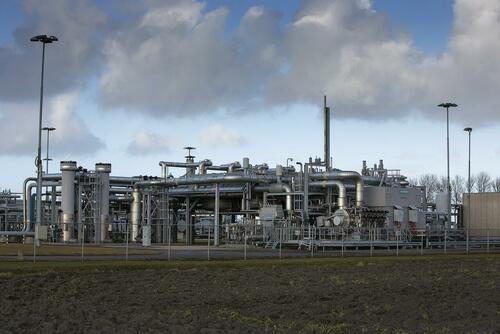
By Irina Slav of OilPrice.com
The Dutch government plans to close the Groningen gas field this year despite Europe’s precarious supply position. Groningen is the largest gas field in Europe.
The field is dangerous, a government official from the Hague told the Financial Times, and the government has no plans to boost production from it.
“We won’t open up more because of the safety issues,” Hans Vijbrief told the FT.
“It is politically totally unviable. But apart from that, I’m not going to do it because it means that you increase the chances of earthquakes, which I don’t want to be responsible for.”
Production from Groningen has been curtailed substantially, and there were plans in place to phase out production altogether because of increased seismic activity in the vicinity of the field even before the energy crisis began in 2021.
As gas prices began to climb in the autumn of 2021 and then took off in the spring of 2022, some began speculating that the Netherlands could keep the field operating to contribute to filling the gap in gas supply left by Russian pipeline deliveries.
The Dutch government was skeptical about that from the start and instead suggested production be extended, although at a minimum rate of some 2.8 billion cu m. Now, this, too, is being reconsidered.
“It’s very, very simple: everybody who has some knowledge of earthquake danger tells me that it’s really very dangerous to keep on producing there. I’m quite convinced it’s wise to close it down,” Vijbrief told the FT.
Since the 1980s, the FT notes, there have been some 100 earthquakes annually around Groningen, resulting in more than 150,000 claims for property damage. The operator of the field, a Shell-Exxon joint venture, was ordered to start reducing output in 2013 with a view to shutting the field down eventually.
By Irina Slav of OilPrice.com
The Dutch government plans to close the Groningen gas field this year despite Europe’s precarious supply position. Groningen is the largest gas field in Europe.
The field is dangerous, a government official from the Hague told the Financial Times, and the government has no plans to boost production from it.
“We won’t open up more because of the safety issues,” Hans Vijbrief told the FT.
“It is politically totally unviable. But apart from that, I’m not going to do it because it means that you increase the chances of earthquakes, which I don’t want to be responsible for.”
Production from Groningen has been curtailed substantially, and there were plans in place to phase out production altogether because of increased seismic activity in the vicinity of the field even before the energy crisis began in 2021.
As gas prices began to climb in the autumn of 2021 and then took off in the spring of 2022, some began speculating that the Netherlands could keep the field operating to contribute to filling the gap in gas supply left by Russian pipeline deliveries.
The Dutch government was skeptical about that from the start and instead suggested production be extended, although at a minimum rate of some 2.8 billion cu m. Now, this, too, is being reconsidered.
“It’s very, very simple: everybody who has some knowledge of earthquake danger tells me that it’s really very dangerous to keep on producing there. I’m quite convinced it’s wise to close it down,” Vijbrief told the FT.
Since the 1980s, the FT notes, there have been some 100 earthquakes annually around Groningen, resulting in more than 150,000 claims for property damage. The operator of the field, a Shell-Exxon joint venture, was ordered to start reducing output in 2013 with a view to shutting the field down eventually.
Loading…







